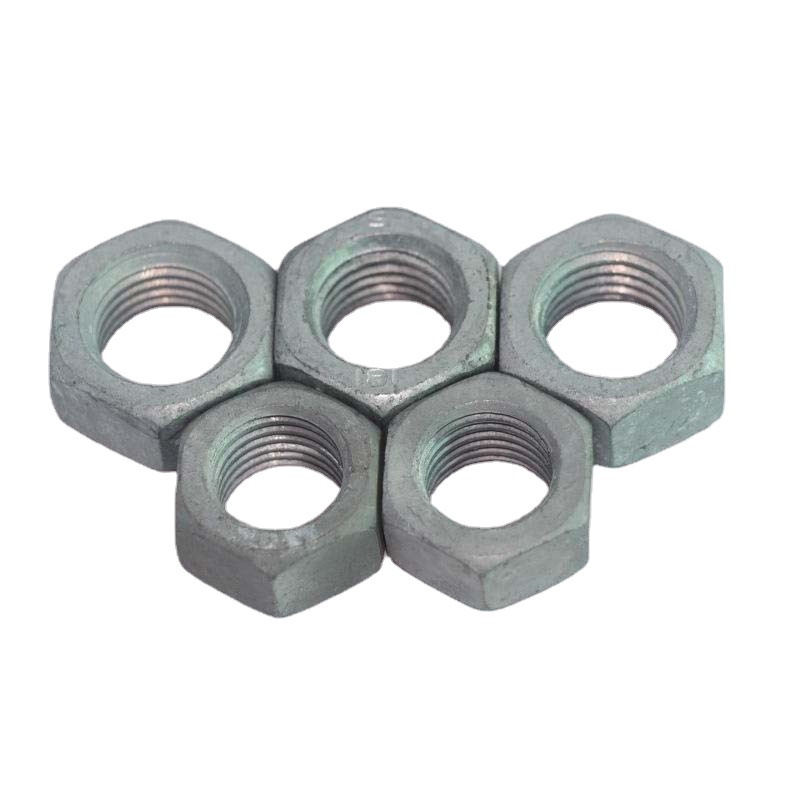

M20 Flange Nut Specifications and Applications in Various Industries
Dec . 14, 2024 07:29 Back to list
M20 Flange Nut Specifications and Applications in Various Industries
Understanding M20 Flange Nuts A Comprehensive Overview
In the realm of mechanical engineering and construction, fastening components play a crucial role in ensuring structural integrity and safety. Among the myriad of fastening solutions available, the M20 flange nut stands out for its unique design and functionality. This article delves into the characteristics, applications, and advantages of M20 flange nuts, providing a well-rounded understanding of their importance in various industries.
What is an M20 Flange Nut?
An M20 flange nut is a type of nut that is characterized by its round, disc-like flange at one end. The designation M20 indicates that the nut has a nominal diameter of 20 millimeters. Flange nuts are designed to distribute the load over a larger surface area than standard nuts; this feature helps to reduce the risk of damage to the workpiece and enhances the nut's grip. As a result, M20 flange nuts are commonly used in applications where preventing loosening and ensuring a secure fit is paramount.
Design and Specifications
The design of the M20 flange nut includes several key specifications
1. Material M20 flange nuts are typically manufactured from various materials such as carbon steel, stainless steel, or brass. The choice of material largely depends on the specific application's requirements, including environmental conditions and load-bearing capacity.
2. Finish The nuts may come in different finishes, including zinc plating, galvanizing, or black oxide treatment. These finishes not only improve aesthetic appeal but also provide corrosion resistance, extending the lifespan of the fastener.
3. Thread Pitch The standard thread pitch for M20 nuts is usually 2.5 mm, but variants exist depending on the application needs. It's crucial for engineers and builders to choose the correct thread pitch to ensure compatibility with the corresponding bolt or screw.
4. Dimensions The flange typically has a larger diameter than the nut itself, creating a washer-like effect. The specific diameter of the flange can vary, but it generally ranges from 30 mm to 40 mm, and its thickness can also vary based on the design specifications.
Applications of M20 Flange Nuts
M20 flange nuts are utilized across a wide range of applications, including
m20 flange nut

1. Construction In construction projects, M20 flange nuts are widely used for structural steel connections, providing robust fastening capabilities in beams, girders, and columns. Their load distribution feature minimizes the risk of material failure.
2. Automotive The automotive industry employs M20 flange nuts for securing various components, such as engine parts and chassis elements. The ability to withstand vibration while maintaining a secure fit makes them ideal for these applications.
3. Machinery and Equipment Heavy machinery often requires durable fastening solutions. M20 flange nuts are utilized to hold together different machine components, ensuring reliability under heavy loads and constant usage.
4. Manufacturing Many manufacturing processes also rely on M20 flange nuts for assembly purposes. They provide an efficient and secure means of attaching different parts in various equipment setups.
Advantages of M20 Flange Nuts
The benefits of using M20 flange nuts are manifold
1. Enhanced Load Distribution The larger flange provides better load distribution across the surface, reducing the risk of damage to the connected components.
2. Stability Due to their design, M20 flange nuts are less prone to loosening under dynamic loads, making them a stable choice for high-vibration applications.
3. Ease of Installation The flange effectively serves as a built-in washer, simplifying installation and reducing the need for additional hardware.
4. Versatility M20 flange nuts can be used in various environments, thanks to the availability of different materials and protective finishes.
Conclusion
In summary, M20 flange nuts represent an essential component in the toolbox of engineers, builders, and manufacturers. Their unique design, combined with a range of materials and finishes, makes them suitable for diverse applications across multiple industries. Understanding the characteristics and benefits of M20 flange nuts helps ensure that the right fastening solution is selected—one that guarantees safety, reliability, and longevity in any construction or assembly project.
Latest news
-
Hot Dip Galvanized Bolts-About LongZe|High Strength, Corrosion Resistance
NewsJul.30,2025
-
High-Strength Hot Dip Galvanized Bolts - Hebei Longze | Corrosion Resistance, Customization
NewsJul.30,2025
-
Hot Dip Galvanized Bolts-Hebei Longze|Corrosion Resistance&High Strength
NewsJul.30,2025
-
High-Strength Hot-Dip Galvanized Bolts-Hebei Longze|Corrosion Resistance&High Strength
NewsJul.30,2025
-
Hot Dip Galvanized Bolts-Hebei Longze|Corrosion Resistance&High Strength
NewsJul.30,2025
-
Hot Dip Galvanized Bolts - Hebei Longze | Corrosion Resistance, High Strength
NewsJul.30,2025

